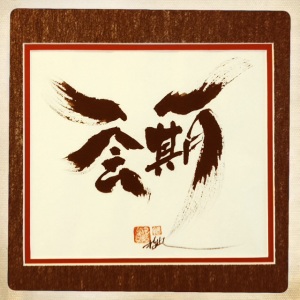
Lately, a mere two months away from the one-year anniversary of our arrival to Nova Scotia from Japan, I’ve found myself lifted and carried by a flood of memory. Maybe it’s the change in season (new life’s surge) or reverse culture shock (I’m due) or my undeniably middle-aged status (40!) or my sporadic engagement with social media (an endless yet ephemeral reunion of souls). But again and again, I’ve been feeling that pang of emotion that accompanies vivid remembrance of those who have passed into and out of my life.
How do we reconcile ourselves to the loss of those we have loved? The changed. The hardened. The dead. Those separated from us by time and distance and circumstance—or by our own flawed choices and habits. How do we find peace when this is our terrible and unrelenting reality?
Travelers and expats know this struggle all too well. The gain and loss of human connection is a huge part of the territory. We are always saying goodbye forever. Always. “One time, one meeting,” that old Japanese tea ceremony adage, is keenly felt—constant, and constantly jarring. Of course, it is this very experience that contributes to a unique and broadened view—one much more difficult to achieve when safe in the comforts of origin and home.
Having children forces this perspective too—perhaps at a greater rate and depth. I hadn’t known that. As parents, we cannot help but grasp the raw reality of a human life, its brief and transient nature. Frankly, I think it is much easier to overlook the arc of our own lives than to ignore that of those who are under our continual watch and care. With our children, we bear witness: each day we meet a new version of our child; each day we say goodbye to the child who was. It is both joyful and wrenching, this microcosm of human experience. And, yes—it can seem overwhelming at times, but it has been one of my greatest teachers.
There is no “peace” when it comes to abiding the impermanence of our bonds with others. Not in that blissful, light, happy sense of the word anyway. There is just acceptance of what is and what will never be again. We are grateful for what we have (this moment); we mourn what we have lost (all those moments that came before). There is no neat separation between the positive and negative. Because this is truth. Complex—and blindingly simple.
On those days that I feel the loss most deeply—as a traveler or as a mother or as a human of 40 years—my reconciliation is in practice, in simply being present at the center of a vast river of encounter, this deluge of memory.
All I have known and loved: in every moment I meet your past, present, and future selves—the many versions of you. I hold you in my mind in a wordless embrace; there is nothing to say. My heart is breaking. I am grateful. I am.
